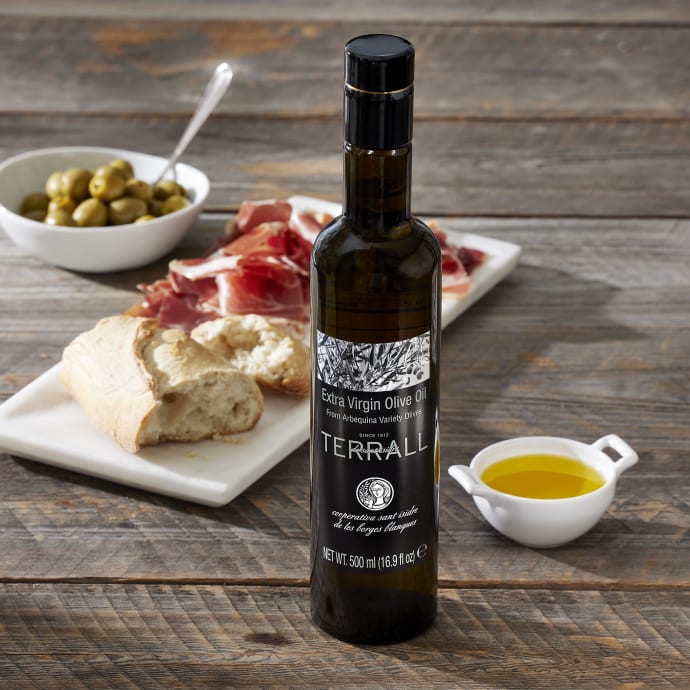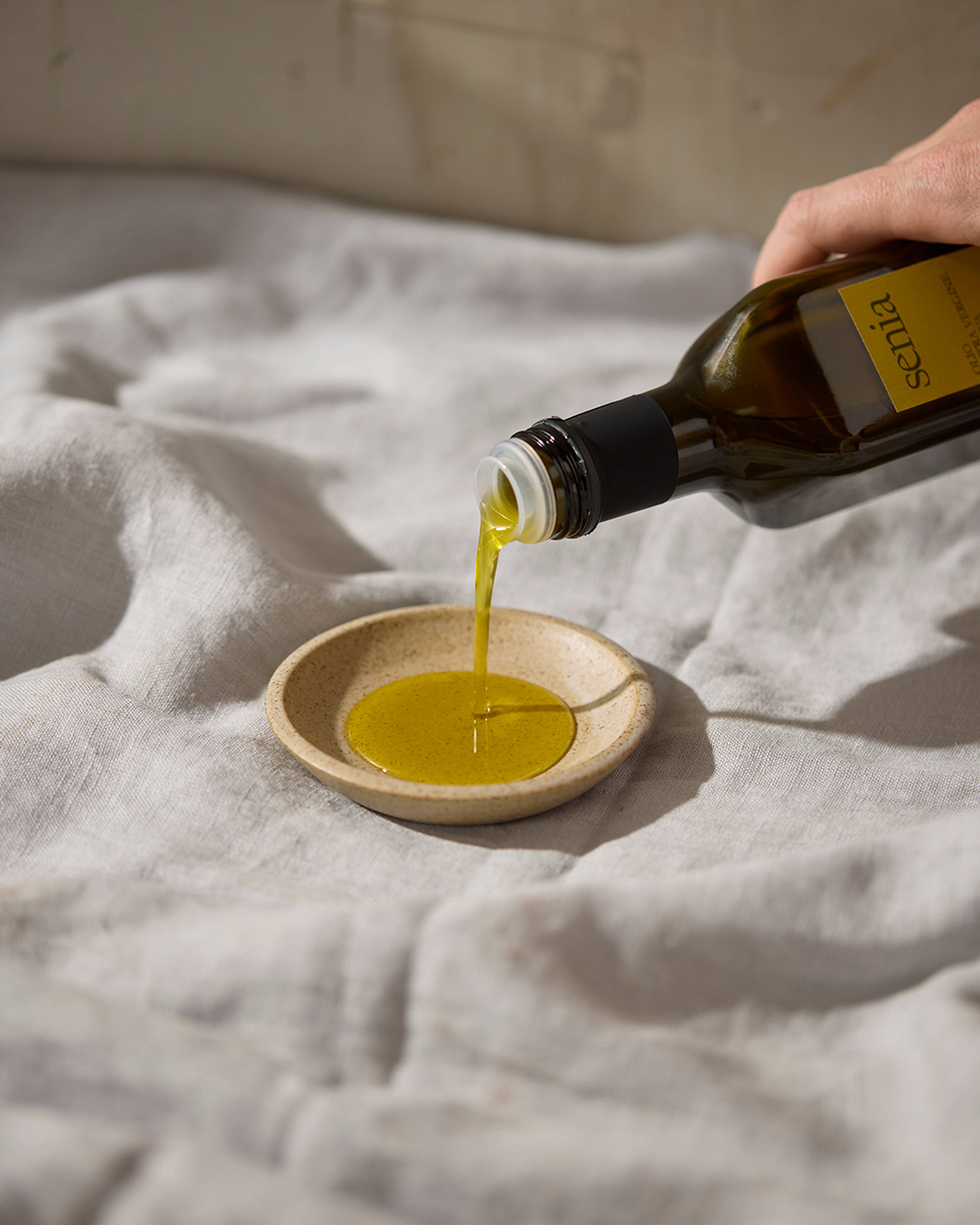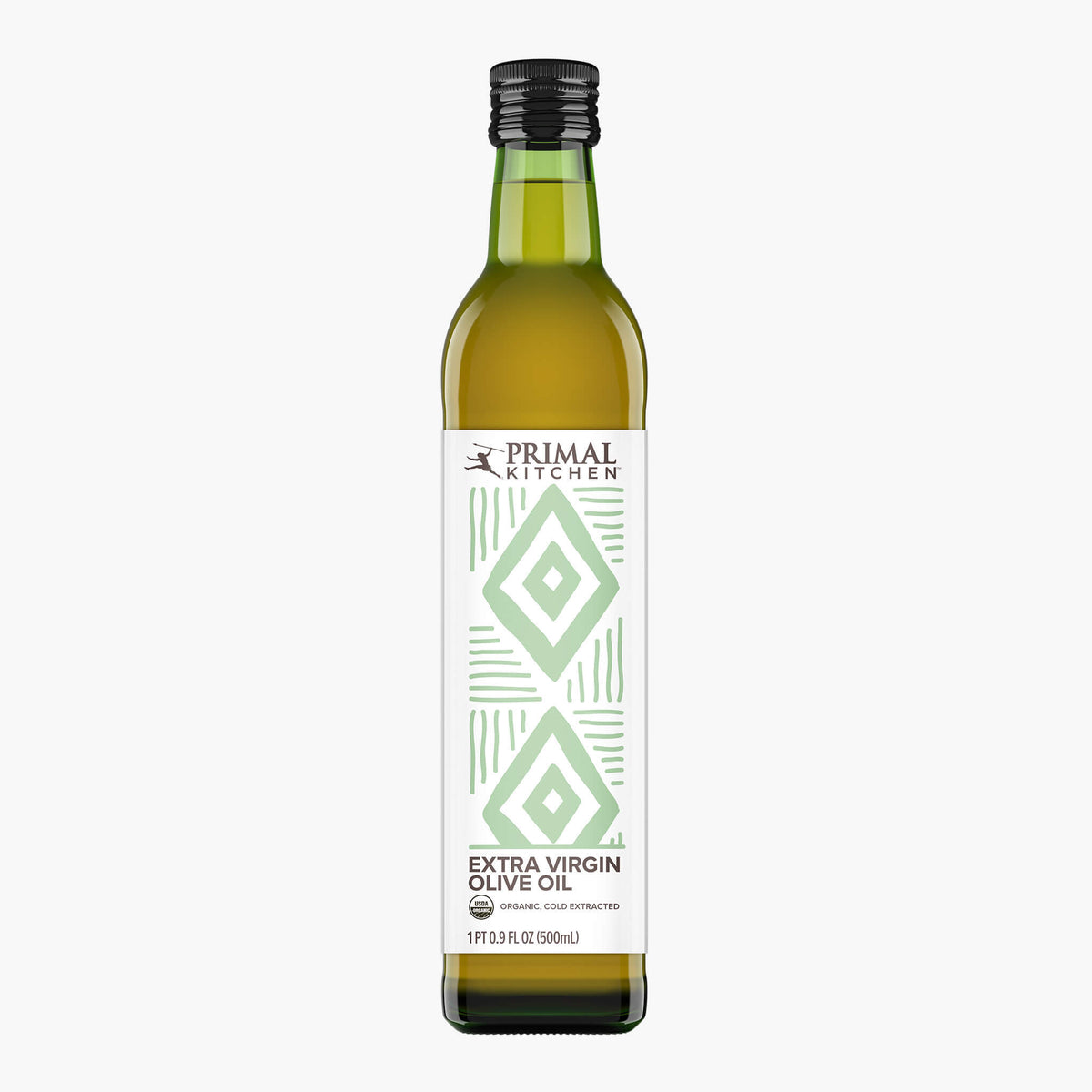Discovering the Different Kinds Of Olive Oil and Their Uses, Consisting Of Extra Virgin Olive Oil
The exploration of olive oil incorporates a diverse variety of kinds, each offering cooking applications and distinct flavors. Additional virgin olive oil, renowned for its superior high quality and wellness benefits, offers as a staple in several kitchens, yet it is only one aspect of this complex ingredient.
What Is Olive Oil?
Stemmed from the fruit of the olive tree, olive oil is a staple in Mediterranean food and an essential component in numerous cooking applications. This versatile oil is created by pushing entire olives, resulting in a liquid that varies in aroma, color, and flavor depending on the kind of olives used, the region of growing, and the extraction procedure. Olive oil is mostly composed of monounsaturated fats, especially oleic acid, which is understood for its prospective wellness advantages, consisting of anti-inflammatory properties and cardiovascular support.
In addition to its culinary uses, olive oil has a lengthy background of application in typical medicine and skincare, owing to its abundant antioxidant web content (extra virgin olive oil benefits). The oil is often used in dressings, sauces, and for cooking approaches such as sautéing and roasting. Its distinctive taste account can improve the taste of various dishes, making it an essential ingredient for both home cooks and specialist cooks
Moreover, olive oil is celebrated for its role in the Mediterranean diet regimen, which is related to many wellness advantages. As understanding of these advantages expands, olive oil proceeds to obtain appeal worldwide as an essential element of a healthy way of living.
Kinds of Olive Oil
Recognizing the different kinds of olive oil is important for both culinary lovers and health-conscious consumers. Olive oil is classified mainly based upon its extraction technique and quality, which substantially influences its flavor, scent, and wellness benefits.

Light olive oil, despite its name, describes a lighter taste and not lower calories. It is perfect for those looking for an extra refined taste in dressings and marinades. In addition, there are flavorful olive oils infused with natural herbs, flavors, or citrus, which can improve dishes without the demand for extra seasoning.
Each kind of olive oil serves specific culinary objectives, and comprehending these differences permits consumers to make informed options that align with their food preparation designs and health objectives.
Extra Virgin Olive Oil
Bonus virgin olive oil (EVOO) is widely regarded as the finest quality olive oil available, celebrated for its rich taste and various health benefits. To be identified as additional virgin, the oil has to be created from fresh olives using mechanical processes, without making use of solvents or extreme warmth. This precise approach preserves the oil's all-natural tastes, antioxidants, and healthy and balanced fats, resulting in a product with a reduced acidity level of less than 0.8%.
EVOO is bountiful in monounsaturated fats, particularly oleic acid, which is linked to lowered inflammation and improved heart wellness. It also includes polyphenols, effective antioxidants that may provide protective impacts versus persistent diseases. The flavor account of EVOO can differ considerably depending upon the olive selection and region of production, ranging from fruity and verdant to robust and peppery.

Culinary Uses of Olive Oil

In food preparation, olive oil can be utilized for sautéing, toasting, and barbecuing, offering a healthier option to butter or other fats. Its high smoke point makes it ideal for numerous cooking techniques, while its antioxidants add to a heart-healthy diet. Drizzling olive oil over ended up recipes, such as pasta, fish, or smoked vegetables, can elevate flavors and include a touch of sophistication.
Additionally, olive oil plays a considerable role in cooking, where it can change conventional fats in recipes for bread and breads, presenting wetness and a subtle preference. It likewise acts as a base for instilled oils, permitting chefs to experiment with tastes such as garlic, herbs, or chili, further increasing its cooking potential. Overall, olive oil's adaptability makes it vital in both home and expert kitchens.
Deciding On High Quality Olive Oil
When picking high quality olive oil, it's important to consider a number of key variables that influence the item's health and wellness, fragrance, and flavor advantages. First and foremost, opt for extra virgin olive oil (EVOO), which is obtained from the initial chilly pushing of olives and contains the greatest degrees of antioxidants and useful compounds. Seek oils that are certified by acknowledged companies, as this often makes sure adherence to rigorous quality requirements.
The product packaging additionally plays a significant function in maintaining the oil's honesty. Choose oils saved in dark glass bottles or tins to safeguard against light deterioration. Take note of the harvest date; fresher oils provide remarkable taste and dietary worth, so select products that are within 18 months of their harvest.
Additionally, think about the origin of the oil. High-grade olive oils why not try these out frequently come from particular regions understood for their unique flavor profiles, such as Italian, Spanish, or Greek oils. Be conscious of the preference; an excellent top quality olive oil need to have an equilibrium of fruity, bitter, and sharp notes, suggesting its richness and complexity. By assessing these elements, you can ensure you are choosing the very best olive oil for your cooking demands.
Conclusion
In recap, the expedition of different types of olive oil exposes distinct attributes and applications, with extra virgin olive oil representing the peak of quality due to its reduced acidity and high antioxidant material. Recognizing the different selections of olive oil allows for educated choices in food preparation approaches, try these out promoting much healthier practices while enhancing the total gastronomic experience.
Acquired from the fruit of the olive tree, olive oil is a staple in Mediterranean cuisine and a crucial ingredient in different cooking applications.The most common kinds of olive oil consist of refined olive oil, pure olive oil, and light olive oil.Additional virgin olive oil (EVOO) is extensively regarded as the greatest top quality olive oil available, popular for its rich flavor and many wellness advantages. Opt for additional virgin olive oil (EVOO), which is obtained from the initial cold pushing of olives and includes the greatest degrees of anti-oxidants and beneficial compounds.In summary, the exploration of different kinds of olive oil reveals distinctive characteristics and applications, with extra virgin olive oil representing the pinnacle of high quality due to its reduced level of acidity and high antioxidant web content.